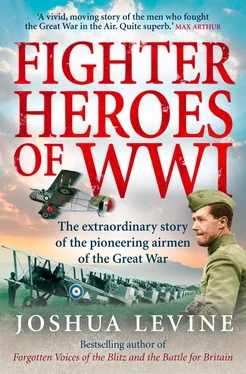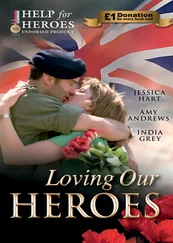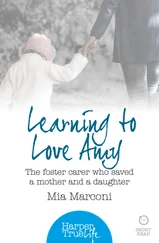1 ...6 7 8 10 11 12 ...15 I was assistant instructor until April 1914, but then Blériot moved to Brooklands, and I became an instructor at the Hall School of Flying at Hendon, which consisted of two Blériots, a Deperdussin, a Caudron and an Avro. I received a pound a week, and we taught a few pupils.
I was on holiday in Scotland when the war broke out. It didn’t upset my holiday. I was thinking this war would be of the nature of the Boer War. But when I got back to Hendon, I found that the cry had gone out for pilots for the Flying Corps, and that a few of the instructors had actually become sergeant pilots. So I promptly put my name down. I signed the papers and waited. I continued instructing with the Hall School – but nothing happened. A lot of my friends were joining up, anxious to get into the war as quickly as possible, as everyone thought the war would be finished by Christmas. I found they were joining the London Scottish, so I spent all day queuing and found myself a perfectly good private in the London Scottish territorial battalion.
By April 1915, I was looking up with great envy from the trenches at the aircraft flying above, so I put in another application to join the Royal Flying Corps. I said that I’d already applied, but had had no reply. My colonel was not very keen because he was losing a lot of his personnel. So he instructed that he would pass on any application if the applicant could get somebody to apply for him from whatever regiment he wished to join. In my case, I knew nobody in the Royal Flying Corps.
Just a week before the Battle of Loos – we were resting behind the trenches – I went up to Auchel where I was watching the aircraft with envy. As I stood, watching the machines landing, a general emerged from the office. As he stepped into his car, acting on the spur of the moment, I said, ‘Please sir, may I speak?’ He looked round, astonished, and didn’t say anything. I pulled out my application papers and told him my story, the fact that I was a qualified pilot, that I wanted to join the Royal Flying Corps but had some difficulty getting anyone to apply for me, that I had replied and had heard nothing more about it. In a very deep voice, he told another officer, also a brass hat, ‘Make a note of that; make a note of that’ … and so on. He said, ‘I’ll see what we can do.’ In the meantime, he called to an airman and said ‘Is there a transport going back towards the trenches, to Béthune? If so, make sure this soldier gets a lift back.’ With that I saluted smartly and off he went. In the tender which took me back to Béthune, I asked the driver, ‘Who was I speaking to?’ ‘Blimey,’ he said, ‘You’ve got a nerve! That was General Trenchard. He’s in charge of the Royal Flying Corps!’
After that, I went through the Battle of Loos, twice over the top. We had a pretty bad time. Each time, I was lucky to get away with it. At one point, there was only one other fellow left in my section. On 9 October, as I was coming out of the trenches, I was greeted by a telegram which said, ‘Report at once to the War Office.’ That night, not having slept for days, dirty and filthy, I was given a first-class warrant and I found myself back in London on a Sunday morning. I wasn’t feeling too good, and I was sent to a specialist, who pronounced that I needed three weeks’ rest. After that, I was in the Royal Flying Corps.
Cecil King was a working-class boy who joined the Royal Flying Corps in 1913. He was to become a rigger and, ultimately, a flight sergeant:
Originally, I was an apprentice to a wheelwright and coach builder in the country, but after I’d come through my apprenticeship, I came to London. I did roughly a year’s work in a London workshop, which was partially underground, and very depressing, and I wanted to get into a more open-air life. I cast about to see what I would do and one day, when I was walking in Kingston, I met two soldiers. They had an unusual badge, with the letters RFC, on their shoulders. I got into a conversation with them and they told me they were members of a new unit called the Royal Flying Corps, which had just started – and why didn’t I join?
I’d never heard of the Royal Flying Corps, and I didn’t know there was a military regiment concerned with flying. Actually, I wasn’t bothered about that – I just knew it would be out in the open air and on big open fields. That’s what I wanted. I was interested in flying, though. In 1911, I’d seen Gustav Hamel flying at Hendon. I remember the announcer said, ‘This is Gustav Hamel on an aeroplane with a Gnome engine.’ The crowd thought he’d said, ‘No engine’ and there was quite a stir.
But after I’d met these two members of the Royal Flying Corps, I went to a recruiting sergeant and asked him about it, and he said, ‘Yes, I think something like that has started, and if you’d like to join, I’ll find out for you.’ I decided I would go a bit further with it. I went to Kingston Barracks and made my final decision. I was sworn into the army there, and I expressed a desire to go in the RFC, so I was given a railway warrant and sent down to Aldershot. When I got there, I asked the first serviceman I saw, ‘Where are the barracks of the Royal Flying Corps?’ and he said, ‘Never heard of it.’
But by inquiring once or twice more I finally found that the Royal Flying Corps shared barracks with the Black Watch so I reported there, and I was sent up to a small building on the aerodrome at Farnborough where all the further particulars of my enlistment were taken down. I was sent back to the barracks for my first night. And when I woke up in the morning I heard the trumpets from the South Camp – that was the cavalry – and the bugles from the North Camp; and I was delighted. I thought, ‘I’m really and truly in the army.’
When war was declared on 4 August 1914, many of the men who were to fly were scattered across the globe. Charles Chabot was living in Bangkok:
The European population of Bangkok at this time was absolutely minimal. A hundred would cover the entire European population of Siam. Nevertheless we had enough English people to rake up a rugby football team. The Germans had a rugby team as well. As the final game of the season, the Germans challenged us and this match was to be followed by dinner at the German club. So we played the game and we were beaten by the Germans and we congregated for the party after the match. We were all mixed up around the table – a German here, an Englishman here, next to him a German, next to him a Frenchman and so on. It began and it was like every other rugby football dinner since time immemorial. And then came a bang at the door and a runner came in from the French Embassy with the extraordinary news of the outbreak of war and he was quickly followed by another runner from the German Embassy. We’d never thought of other chaps in terms of war and we didn’t know what we ought to do, whether we ought to seize a knife off the table and plunge it into the next chap, or what. After a little bit of discussion, we decided that as far as we were concerned, the war was going to start tomorrow. The party proceeded and that was that.
In Britain, the prevailing mood in August 1914 was euphoric. Leslie Kemp remembers:
The war came and threw everything and everybody out of balance. The enthusiasm for the war was really fantastic. There were actresses singing, there were concerts in Trafalgar Square and, if you enlisted, you were given the ‘King’s Shilling’. It was entirely different to the atmosphere that prevailed at the start of the Second World War.
Young men with romantic dreams of flying seized their opportunity. Charles Burne:
When I went home and told my father that I wanted to join the Royal Naval Air Service, he signed the papers but he said, ‘Don’t start flying. It’s only damn fools and birds that fly.’
Читать дальше












